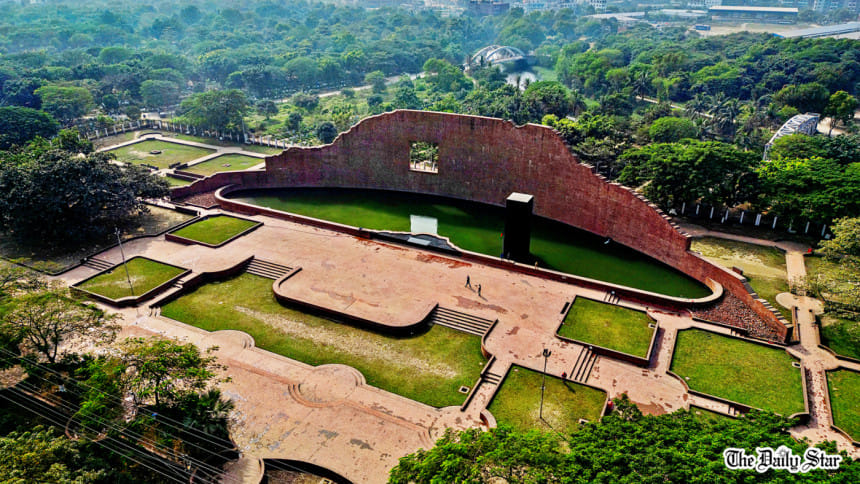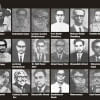Martyred Intellectuals’ Day: No list of martyred intellectuals for now

The Ministry of Liberation War Affairs has put on hold its initiative to prepare a comprehensive list of martyred intellectuals, who were brutally killed by Pakistani military forces with the help of local collaborators in 1971, creating uncertainty over the completion of such a list.
The ministry back in 2020 took the initiative as there was no complete record even five decades after the country's liberation, detailing how many of the brightest sons and daughters of the soil were martyred.
The work was supposed to be completed by December 16 this year.
The ministry in the past four years published four gazettes listing the names of 560 intellectuals, based on recommendations from a national committee. The national committee had a sub-committee to scrutinise the list.
The national committee held its last meeting on March 18, while the sub-committee held it on July 1.
"Since then, we have not heard anything from the authorities regarding the list. I don't think this initiative will see the light of day again," said a member of both committees, preferring to remain unnamed.
According to sources at the ministry and committee, the work was postponed to avoid any new debate over the number of martyred intellectuals.
"The listing process has been postponed as no committees are in place. If the committees are reformed, then listing the martyred intellectuals will be considered again," said Ishrat Chowdhury, secretary of the Liberation War ministry and chief of the national committee.
"This is a policy matter, and I cannot make the decision alone. Either the interim government or the next political government can reconsider it," she added.
The Pakistani army, with the help of local collaborators, began abducting and killing the country's leading intellectuals, who were the guiding light for Bangalees, from the night of March 25, 1971.
Faced with impending defeat, the Pakistani army killed more and more luminaries in the days ahead of December 16, 1971 to cripple the future nation intellectually.
These shining individuals were instrumental in the mass movements against the widespread disparity and oppressive Pakistani rulers. The movements ultimately contributed to the war efforts.
A committee member said that names of martyred intellectuals can be found in the "Shaheed Buddhijibi Koshgrantha," the 1972 government documentary "Bangladesh," "Banglapedia," and on postal stamps.
"Shaheed Buddhijibi Koshgrantha" listed 328 martyred intellectuals, but said the list was not complete.
The documentary "Bangladesh" said 1,109 intellectuals were martyred.
Banglapedia estimated that 1,111 intellectuals were killed – including 991 academics, 49 physicians, 42 lawyers, 13 journalists, nine litterateurs and artists, five engineers, and two others.
Many war researchers, however, believe the total number of martyred intellectuals could be much higher. The members of the "Buddhijibi Nidhan Tathyanusandhan Committee", set up in 1972, had made a primary list of 20,000 intellectuals who were killed.
On November 19, 2020, the ministry formed an 11-member committee—comprising freedom fighters, liberation war researchers, and government officials—to prepare the list.
In its first meeting in December 2020, the committee approved 1,222 names for the primary list. Of them, 1,070 are names the ministry already had, and 152 were obtained from postal stamps issued in the name of martyred intellectuals at various times.
Littérateurs, philosophers, scientists, artists, teachers, researchers, journalists, lawyers, physicians, engineers, architects, sculptors, government and non-government employees, politicians, social workers, cultural activists, musicians, and people involved in film-making, theatre and arts, who were killed by the Pakistani forces or went missing between March 25, 1971, and January 31, 1972, are being defined as martyred intellectuals, several committee members said.
Following the committee's recommendation, the government in May 2021 published the names of 191 martyred intellectuals, and in May 2022, it published the names of 143; in February this year, it published the names of 108; and in March, it published the names of another 118.
At least two members of the scrutiny committee said that they reviewed names of intellectuals from different books and research. They received lists from different professional bodies of doctors and engineers and applications from persons.
A sub-committee member said the ministry received more than 1,000 applications for the list. After the announcement of the fourth gazette, they were scrutinising more than 300 such names to publish in the next gazette.
The member said they faced no hurdles in preparing the list for the first two gazettes.
"But we faced challenges while preparing the names for the next two gazettes as many influential people tried to include some names, complicating our jobs," the member added.
Asif Munier, son of martyred intellectual Prof Munier Chowdhury, said, "I don't know why the government postponed the process, but I can only assume that they have other priorities."
He said the list can be prepared in the future, but it must be ensured that it is done transparently to avoid any debate.
He proposed a wider consultation with various groups, including family members of martyred intellectuals, during the preparation of the definition and the list.

 For all latest news, follow The Daily Star's Google News channel.
For all latest news, follow The Daily Star's Google News channel. 






Comments